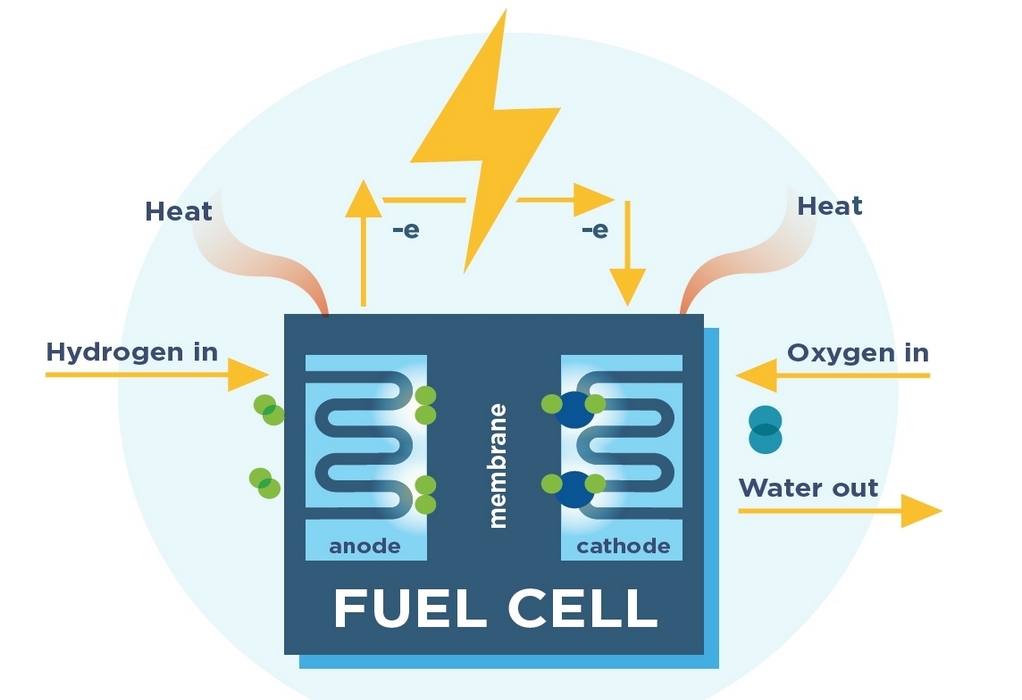To accelerate maritime decarbonization, maritime electrification technology start-up, Pyxis, and fuel cell components manufacturer, Sydrogen Energy, have entered into a non-binding Memorandum of Understanding (MOU) to jointly execute a Proof of Concept (PoC) study in the deployment of hydrogen fuel cell1 solutions. Expected to commence in 4Q 2023 (after the definitive agreements have been negotiated and entered into) and continue till early 2025, this study will further explore hydrogen fuel cells for broader maritime applications.
Hydrogen has gained recognition as an important energy carrier in its role to contribute toward decarbonization globally. The Ministry of Trade and Industry (MTI) announced Singapore’s National Hydrogen Strategy on 25 October 20222, as part of the plan to accelerate the transition to net zero emissions with hydrogen as a key potential decarbonisation pathway for Singapore.
In the recent Committee of Supply debate on 03 March 2023, Parliament outlined initiatives to require harbor craft in the maritime sector to achieve net-zero emissions by 2050 where the Maritime and Port Authority (MPA) will partner with industry, financial institutions, harbor craft operators and manufacturers to help lower the cost of adoption and mobilize support for early adopters. A call for proposals for the design and development, demand aggregation, and green financing for new electric harbor craft (e-HC) was announced on 10 July 2023, beginning with an Expression of Interest (EOI) to design and develop electric harbor craft in Singapore.
Pleasure craft sector and domestic tugboats will subsequently be required to achieve net-zero emissions by 2050 with MPA performing a study of the timelines for the transition and will provide an update in 2024.
This follows the Maritime Singapore Decarbonisation Blueprint in 2022, where all harbor craft will operate on low-carbon energy solutions by 2030, to reduce 15% in emissions from 2021 levels and up to 50% decrease in emissions (compared to 2030) by 2050. Ultimately, the MPA aims for its harbor craft fleet to transition to full-electric propulsion and net zero fuels by 2050.
In view of these developments, Pyxis partners Sydrogen to accelerate the decarbonization of harbor craft by harnessing green technology (hydrogen) for the rapid electrification and power generation requirements to decarbonize the maritime industry’s energy mix.
Under the MOU, Pyxis, and Sydrogen will work collaboratively to develop hydrogen fuel cell solutions for the maritime harbor craft ecosystem from shore to sea, with the objective to achieve Singapore’s electrification goals and pave the way to net zero emissions.
The MOU is not expected to have a material impact on Nanofilm Technologies International’s earnings per share.
Leveraging electrification, Pyxis is set to spearhead maritime decarbonization and achieve significant advancements in coastal vessel performance and digitalization. Pyxis’ mission is to propel the maritime industry towards a greener, more sustainable future while helping vessel owners to operate more efficiently and cost-effectively.
Tommy Phun, Founder, and Chief Executive Officer of Pyxis, said, “The sustainability movement has sparked a transformative disruption in the maritime industry. Decarbonization is no longer a bonus, but a necessity. Acknowledging the significant challenges that coastal vessel owners and operators face in the transition towards an electric fleet, our goal is to ease and boost /adoption by achieving mass commercialization of electrification technologies. Our strategic partnership with Sydrogen Energy brings together two homegrown companies to lead the charge in positioning Singapore at the forefront of maritime decarbonization in the region.”
David DeVries, Chief Executive Officer of Sydrogen Energy, said: “Zero emission power generation plays an important role in decarbonizing our energy use. The proof of concept combines Sydrogen’s Deep Tech capabilities with a key maritime ecosystem player to develop home-grown solutions to future-proof Singapore’s maritime energy mix. We are glad to work /with future-centric partners such as Pyxis in this endeavor toward building out local i/innovations to meet our near and long-term decarbonisation targets.”
Established in 2021, Sydrogen has been providing Deep Tech solutions that enhance the performance of hydrogen fuel cells to automotive customers in China, in addition to coating services to other players in the market. This PoC will provide additional opportunities to showcase Sydrogen’s capabilities in fuel cell systems that help accelerate maritime decarbonization efforts.
Source: Pyxis & Sydrogen.
Tags: Fuel Cell, Hydrogen, Pyxis, Sydrogen



Recent Posts
India charts green shipping path: MEPC 83 outcomes discussed at IMEI-DG tech seminar
IME(I) Mumbai pioneers holistic development for future mariners with emotional resilience workshop
Adani launches India’s first hydrogen-powered truck
MAN Energy Solutions Completes Type Approval Test for Upgraded Dual-Fuel GenSet
Global Shipyards Launch Alliance to Accelerate Maritime Sustainability
Port of Antwerp-Bruges Launches Volta 1, Europe’s First Fully Electric Tugboat
CMA CGM Adds Second Methanol-Powered Vessel ‘Argon’ to Its Fleet
Electric Orkney Project Launches Game-Changing Hydrofoil Vessel ‘Zevi 1’